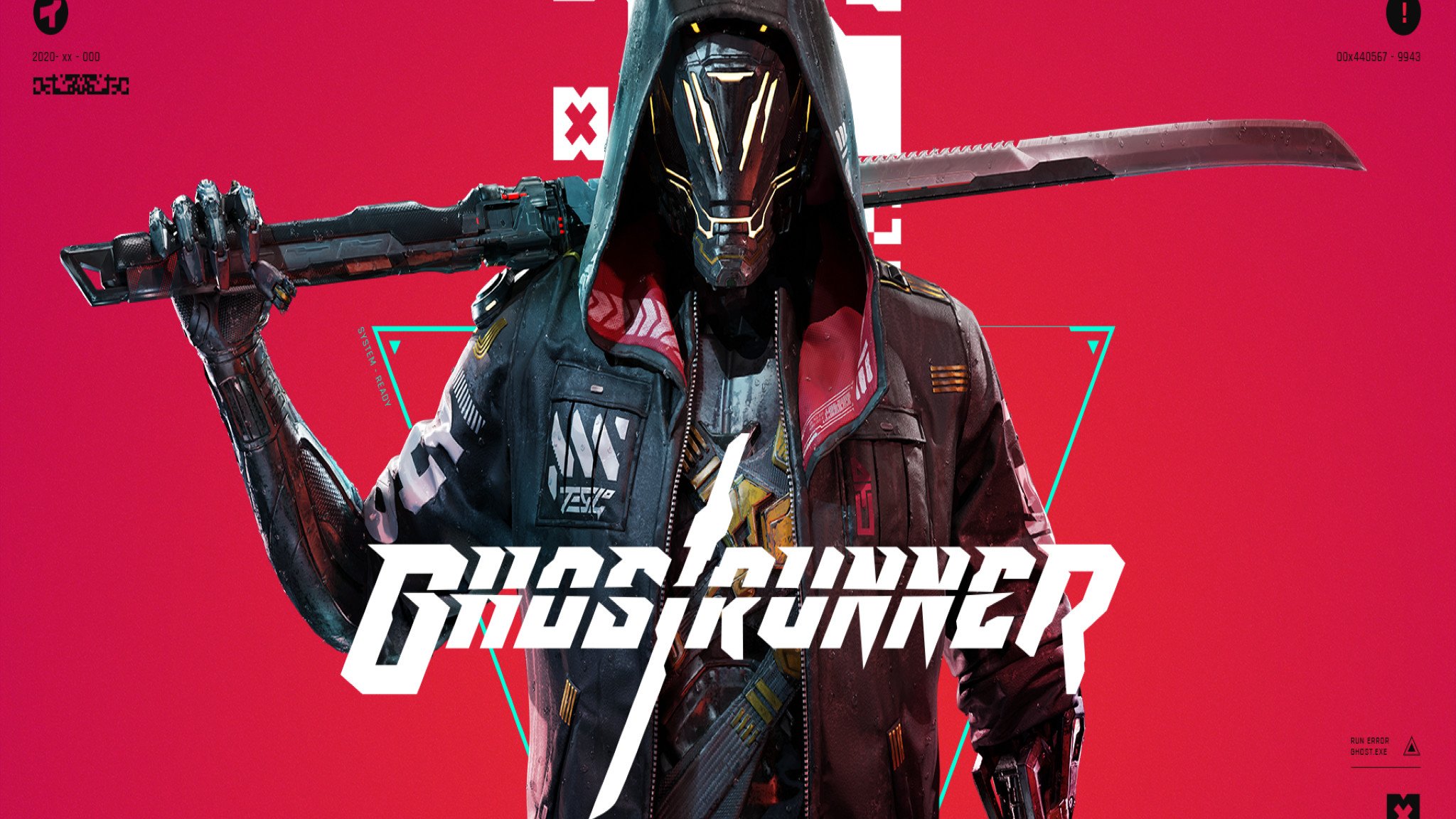Perhaps it's because the world feels more dystopian than ever before, or maybe it's a lack of original ideas, but 2020 has seen a renaissance of cyberpunk, the subgenre made popular by authors like Phillip K. Dick and brought to life in movies like Bladerunner and The Matrix. From Ubisoft's Hyperscape to CDProjeckt's Cyberpunk 2077, the neon lights and dystopian cityscapes that define the Sci-fi subgenre have reemerged in videogames in a big way. The latest game to put the aesthetic to use is Ghostrunner, a first-person platformer that puts you in the cybernetic shoes of the titular character. Armed with a sword and bereft of his memories, you must figure out who you really are and unravel a conspiracy, while relearning how to be a badass cyber ninja.
Borrowing gameplay queues from games like Mirror's Edge, Ghostrunner is a platformer at its core and a difficult one at that. Players must run, jump, and slice their way through desolate factories and decaying city blocks within the grim Dharma Tower, humanity's last shelter. When Ghostrunner is on the move, the action is fast-paced and electric, made even more intense thanks to the game's great synth soundtrack, but Ghostrunner's flaws start to bubble to the surface when the game slows down and forces you to fight, often bringing its frenetic pace to a screeching halt.
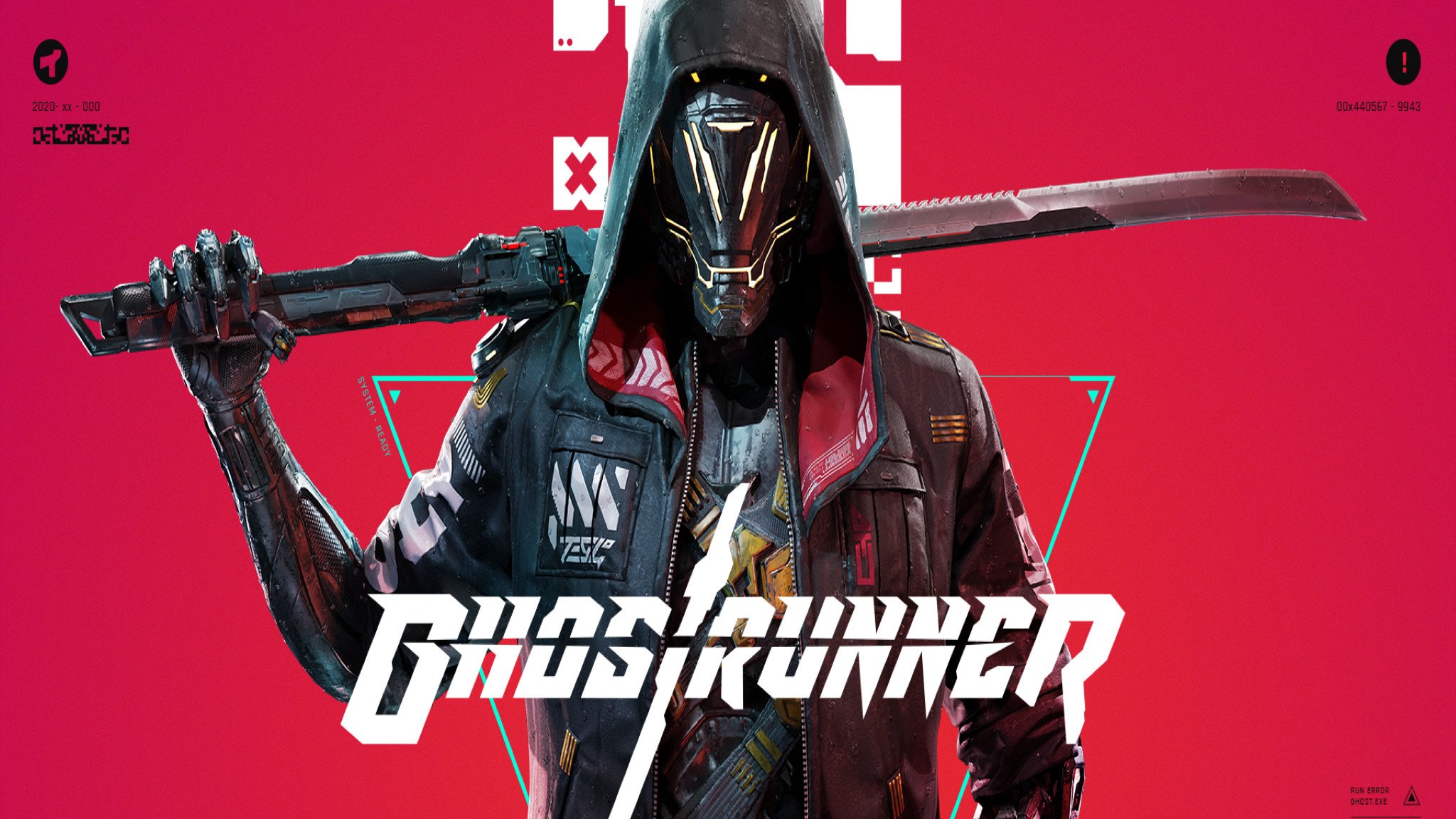
Bottom Line: Ghostrunner is a thrilling ride for most of its 8-hour runtime, thanks to its fantastic soundtrack, sci-fi visuals, and fast-paced gameplay. The game starts to stumble, however, when the platforming stops and the combat begins.
Pros
- Fast-paced action
- Clever platforming and puzzles
- Looks and sounds great
Cons
- Combat slows the pace of the game
- Repetitive environments
- Not always clear where to go or what to do
Ghostrunner review: What I love about Ghostrunner
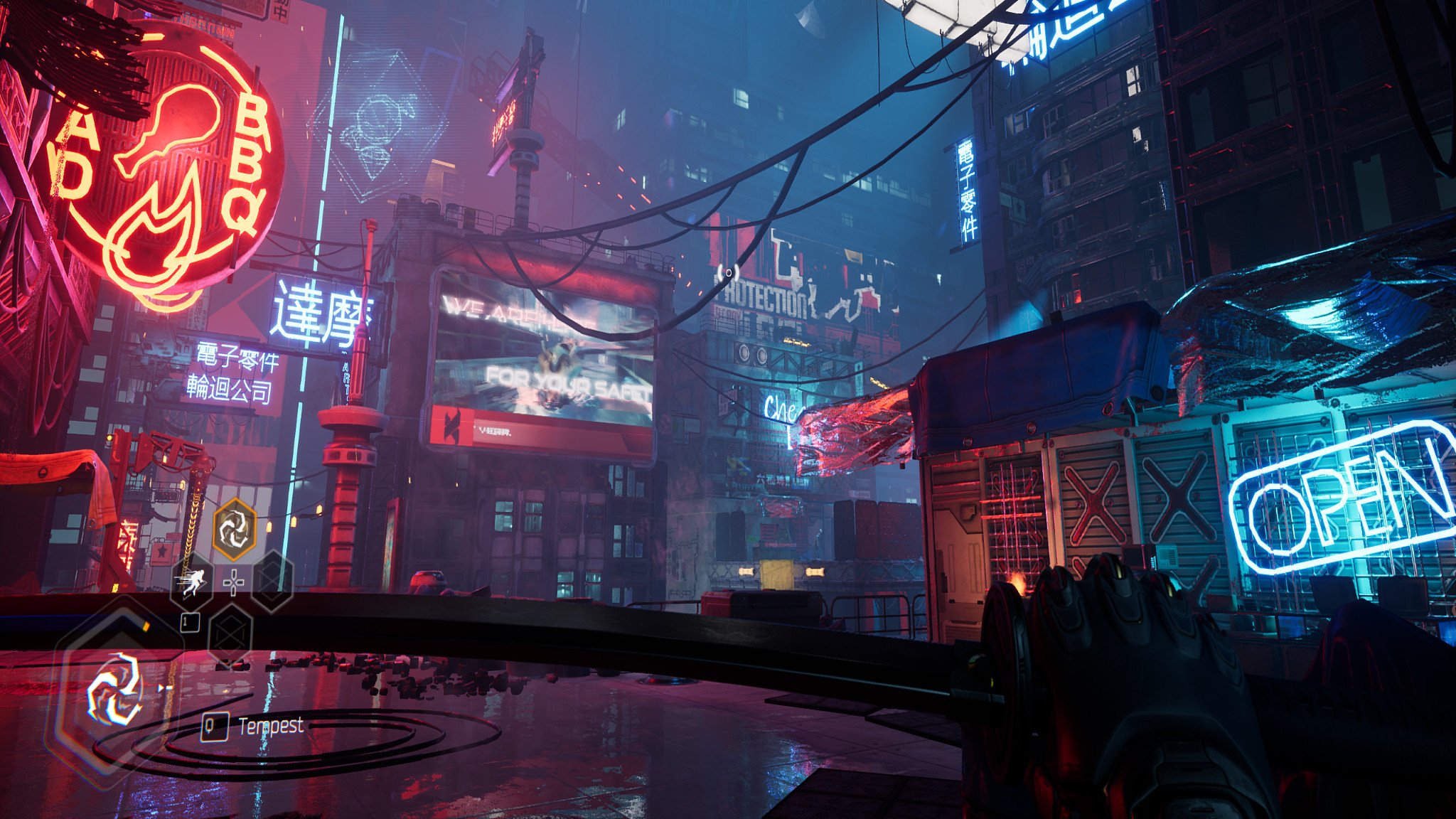
Right off the bat, the first thing you'll notice about Ghostrunner is that it oozes style. The rain-soaked rooftops and malfunctioning neon advertisements look fantastic, even if it's nothing we haven't seen before. Running on Unreal Engine 4, the indie game looks as good as any other high-budget production, and scales incredibly well, making an appearance on current gen-consoles (including the Nintendo Switch) and will be making the jump to next-gen consoles in 2021. The soundtrack is also worthy of praise, composed by electronic music producer Daniel Deluxe. The catchy bass and synth pair nicely with the breakneck wall-running and rail grinding that make up most of the game.
| Category | Ghostrunner |
|---|---|
| Title | Ghostrunner |
| Developer | One More Level, 3D Realms, Slipgate Ironworks |
| Publisher | 505 Games, All in! Games |
| Genre | First-Person Platformer/ Action |
| Platforms | Steam, Nintendo Switch, Playstation 4, Xbox One |
| Game Size | 22 GB |
| Players | 1 player |
| Price | $30 |
Ghostrunner's gameplay consists mostly of running from one point to another, either by clearing a room of enemies, solving a puzzle, or navigating a difficult platforming challenge. The latter two are where this game shines. I really enjoy hardcore 2D platformers like Super Meat Boy and Celeste, and Ghostrunner shares a surprising amount of DNA with those tough as nails platformers.
While the game is totally in first-person, the split-second precision platforming makes the jump to the third dimension with ease, and the game's emphasis on mobility and movement builds upon those 2D foundations. This is especially true in the final segment of the game, which contains pure, high-octane platforming. Ghostrunner could stand alone as a platformer, even without the gritty, cybernetic exterior.
Take a slice out of crime
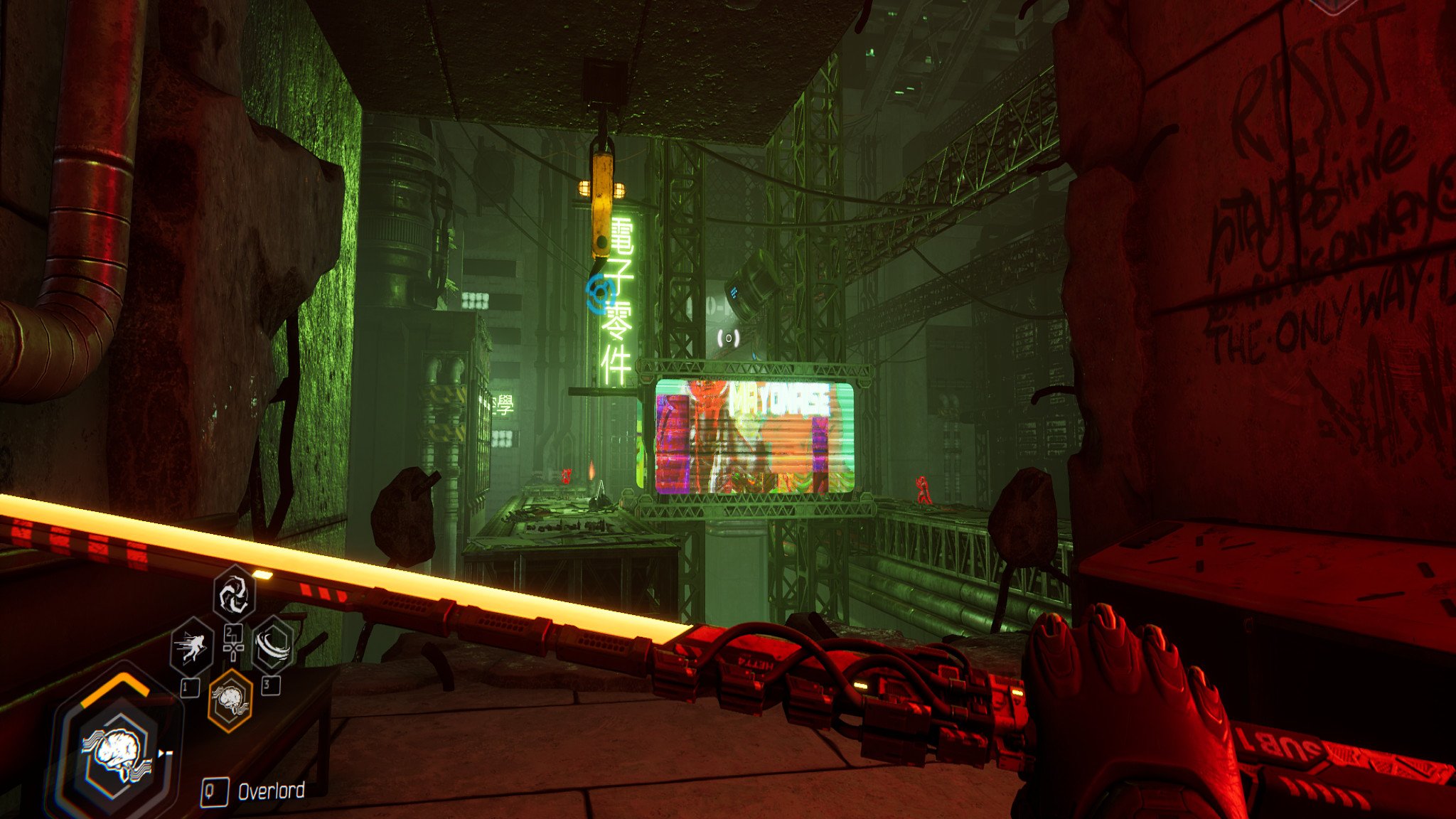
Combat is handled in a much simpler way. Your ghostrunner wields a powerful sword that'll cut enemies in half with one swing. The one hit, one kill mechanic keeps the game's pace high. You, however, are also victim to the mechanic. One hit is all it takes to end a run, but thankfully no matter if you get shot in the face or fall to your death from a miscalculated jump, your lives are infinite, your checkpoints are well placed, and your restarts are instantaneous. Which is helpful because you'll probably be dying a lot.
In addition to your trusty katana, Ghostrunner features a unique upgrade system that allows you to mix and match upgrades, or Booster Modules, as you unlock them. Booster Modules come in all different shapes and sizes, and you must try to fit as many as you can into the 36 square slots provided. It's almost like playing a game of Tetris, as you twist and turn modules to best fit your playstyle. There are also four abilities that you unlock as you play. These abilities include a projectile, a multi-kill dash attack, a force push, and the ability to hack an enemy and turn them against their allies.
All the latest news, reviews, and guides for Windows and Xbox diehards.
Ghostrunner review: What I don't love about Ghostrunner
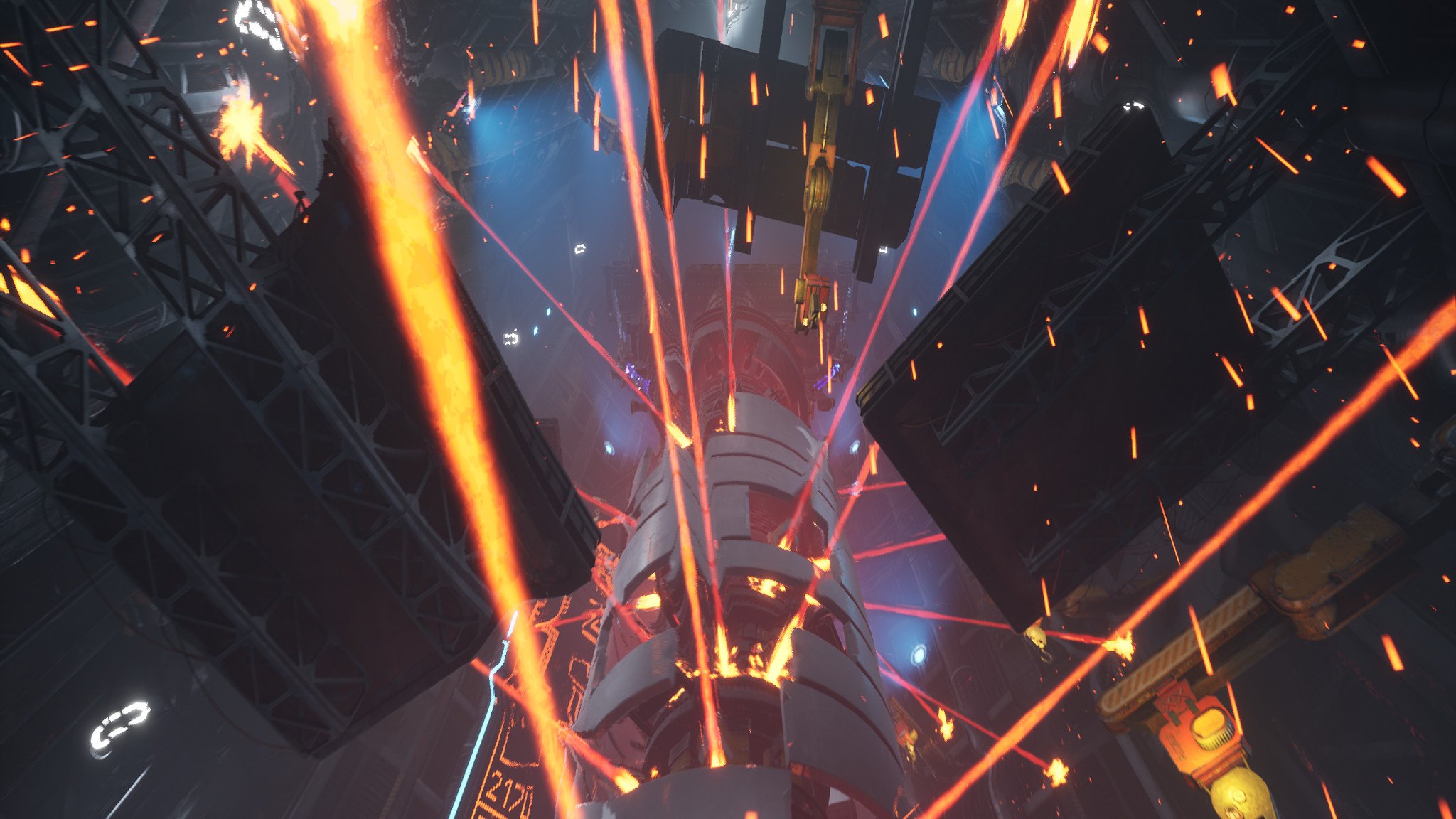
Ghostrunner might be fast and furious most of the time, but the second it starts to slow down, Ghostrunner starts to become a chore. The combat, while simple, proves to be the game's biggest annoyance. I hated when I had to put a pause on the parkour to deal with the generic baddies that seem to always know where I am, no matter where I am. There's a lot of trial error involved in combat situations, mostly because I had a hard time keeping track of the enemies in the area.
Sometimes I'd rush to take out a foe, only to be shot in the back by another gunman across the map. An indicator flashes on the screen to let you know where an enemy is shooting from, but I never really felt like I knew where every enemy was until I died by each one twenty times. Unlike platforming deaths, where I felt the death was my fault, dying in combat frustrated me to no end.
Your Ghostrunner might be a super powerful cyber ninja, but the one-hit kills made me feel like I was built out of wet tissue paper instead. And despite the Ghostrunner's abilities, there was never much incentive to use anything outside of my katana, the default dodge move, and the very useful Tempest ability, that unintentionally gave me Star Wars vibes.
Not so punk
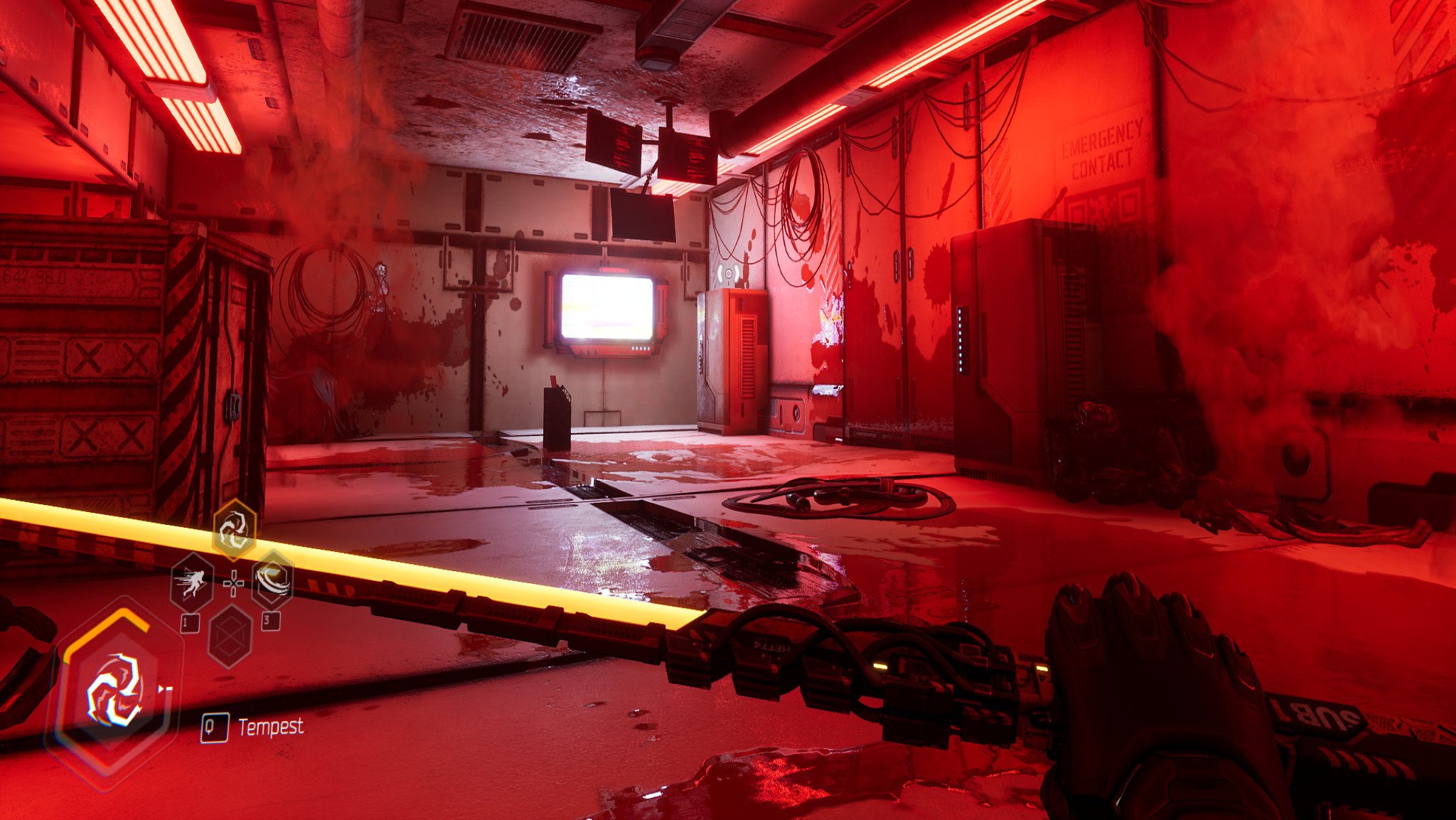
The levels are incredibly linear and don't give your Ghostrunner much freedom, which is a shame because Ghostrunner shines brightest when you're running and jumping between buildings at high speeds. Most of the time, there's one predetermined to your destination or a certain path that is best suited for taking out enemies. The neon-drenched aesthetic starts to wear thin about halfway through the game when you start to realize the crowded rooftops and derelict factories all look the same.
The levels are incredibly linear and don't give your Ghostrunner much freedom
The sameness of Ghostrunner's environments hinders your navigation as well. Ghostrunner is not always clear about where you should go, and a few times I jumped for the wrong ledge, or ran across the wrong wall and plummeted to my death. Unlike a game like Mirror's Edge, which featured a clean aesthetic that clearly marked your path, Ghostrunner's rundown environments and muted color palette don't always translate the direct path.
Should you take up the blade?
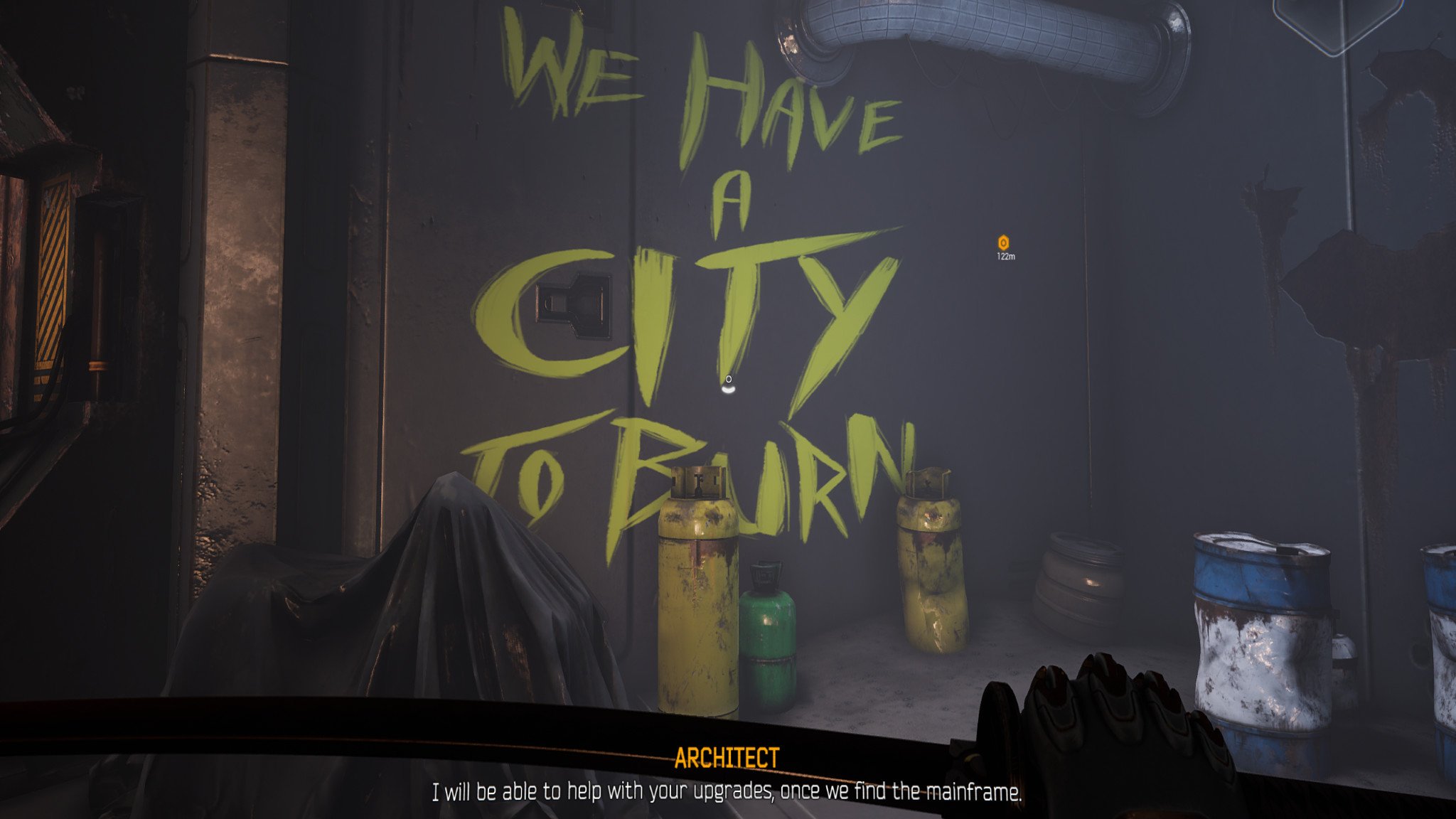
Ghostrunner is a fun and unique platformer that looks great and sounds even better. and really shines as a first-person platformer, a genre that is about as common as an intelligent conversation in a Youtube comment section. The platforming sections are so great that it's unfortunate when progress is slowed by clunky combat and some spotty pathfinding.
At a $30 price tag and an 8-9 hour runtime, it's easy to recommend, though don't expect a deep story or much in the way of replayability. When Ghostrunner works, it's a one of a kind experience, and it's worth trudging through for fans of platformers, and those looking for a cyberpunk fix. The flaws hold Ghostrunner back from greatness, but there's still a lot to enjoy.
Ghostrunner's fast-paced action and challenging platforming make for a wild ride. Unfortunately, the clumsy combat, linear levels, and repetitive environments get in the way of Ghostrunner's greatness.

Zackery Cuevas is a former writer for Windows Central, Android Central, and iMore. I like playing video games, talking about video games, writing about video games, and most importantly, complaining about video games. If you're cool, you can follow me on Twitter @Zackzackzackery.
